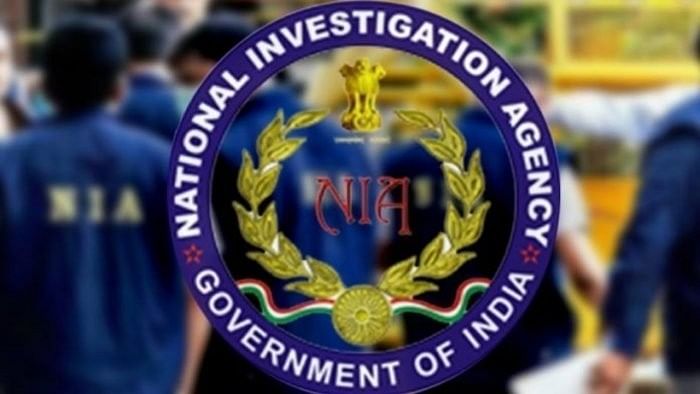
The logo of the National Investigation Agency (NIA).
Credit: PTI File Photo
Guwahati: Insurgent group ULFA-Independent on Sunday rejected a summon issued to its top leaders by a special NIA court here in connection with a case registered for a grenade attack on an army camp last year.
In a statement to the media organisation, Ishan Asom, a leader of its publicly wing, on Sunday morning said that ULFA issue is a political conflict and not a law and order matter and so a solution lies in discussion at the political level only.
"If the NIA also wants a solution, it should ask the government of India to have a discussion at the political level on the issue of sovereignty of Assam. Instead of doing so, if such acts continues, our fights will continue and it will become stronger," said the email statement.
The NIA court here recently issued a public notice asking ULFA-I military Chief Paresh Baruah, another senior leader Arunodoy Asom and others to be present during trial of the case filed related to a grenade attack on an army camp at Kakopathar in eastern Assam's Tinsukia district in November last year.
However, none was injured in the attack but the case was later handed over to the NIA.
In May this year, the NIA filed chargesheets against Baruah and five others charging them as masterminds for the attack carried out by two motorcyle-borne youths.
The NIA said investigation revealed that the Myanmar-based insurgent group, which was born in Assam, had hatched the conspiracy of carrying-out a series of attacks on army camps.
The chargesheets were filed amid Assam government's efforts to bring the Baruah-led faction of ULFA-Independent to the talks table. Formed in 1979 with a demand for 'sovereign Assam,' ULFA resorted to large scale violence in Assam in the past.
The ULFA group led by chairman Arabinda Rajkhowa, however, signed an agreement with the government in December last year. But Baruah remained firm on his demand for discussion on the demand of sovereignty, something which was rejected by the government several times.
In fact, Assam CM Himanta Biswa Sarma said ULFA-I has now remained the only 'stumbling block' in the process to establish permanent peace in the state. Baruah and his associates are believed to be taking shelter in their hideouts somewhere along the China-Myanmar border.